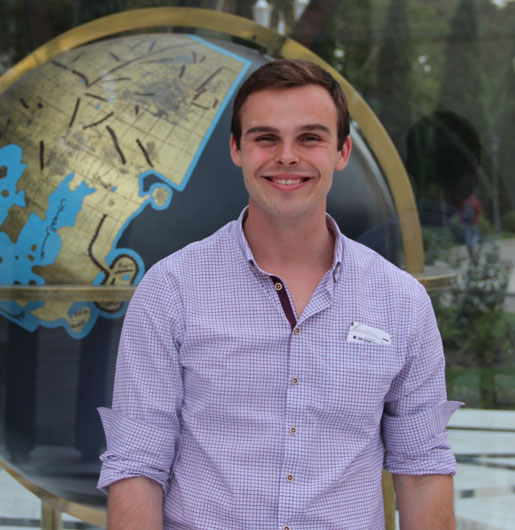Jeffrey Dick
July 27, 2016

Jeffrey Dick | |
Jeffrey Dick, 26--National Science Foundation Graduate Research Fellow, Center for Electrochemistry, The University of Texas at Austin Dick is passionate about using electrochemistry to create an ultra-sensitive, highly specific diagnostic technique to detect a single virus particle in a sample. With colleagues with expertise in virology, he used a highly specific antibody and glucometer technology to develop a method capable of detecting single viruses from a sample of mouse urine. He told MD+DI, "We view this work as a scaffold upon which other digital sensing technologies might be built for single cancer cells, DNA strands, and possibly proteins." What's next--in his own words: "Many challenges exist before this methodology can be taken to the next level. Imagine an Olympic-sized pool with a small wire (in electrochemistry, we call this the electrode) sticking out of the middle. Now, you throw in a Ping-Pong ball. How long would you have to wait for that Ping-Pong ball to randomly collide with the wire? Probably a pretty long time. You could decrease that amount of time by adding in a thousand more balls! As you can see, while the ultimate limit of detection of a single virus is achieved, one has to wait for that virus to arrive at a conductive wire (the electrode) to be detected. Therefore, methods must be developed to increase the arrival rate of the species of interest. Once the arrival rate issue is optimized, one other hurdle is developing a robust technology that can be taken out to the field in order to perform a rapid test. All of these challenges are exciting because they present problems that cannot be solved without crossing traditional disciplinary boundaries." What are the biggest factors that helped you become a young innovator? "The key to innovation is being able to stay creative and being absolutely unafraid of being wrong . . . I have learned that just because a nominal expert says something cannot be done doesn't mean nature is in agreement . . . The frontiers of human knowledge are rife with discoveries when disciplines are bridged, and the innovations that can come from those discoveries may have broad implications on society. On a more personal level, my father fueled my imagination by helping me write stories, pointing out shapes in the clouds, and challenging my mind to make connections that were not so obvious. To this day, I have a hobby of thinking of ways to simplify abstract scientific concepts by finding real-world examples to make these concepts relatable to a diverse audience. My grandpa was not only passionate about science, but he was an extremely patient man--I can remember sitting on the phone with him for hours talking about science and the cosmos. These two men had a great influence on my creativity and passion for creatively pursuing new knowledge . . . My passion for innovation simply comes from the enjoyment of investigating problems that could have broad implications on society." What is the biggest challenge you have faced so far? "Innovation requires immense attention to how science and ideas are communicated amongst scientific peers, government officials, entrepreneurial partners, and the general public. Perhaps the greatest challenge for me has been developing communication skills to begin having fruitful collaborations . . . The happiest moments in my former collaborations occurred when one of us began asking meaningful questions about the other's field of study, and we realized the most exciting answers were "That's interesting--I have no idea . . ." | |
| |
| |
[Image courtesy of JEFFREY DICK] |
You May Also Like




